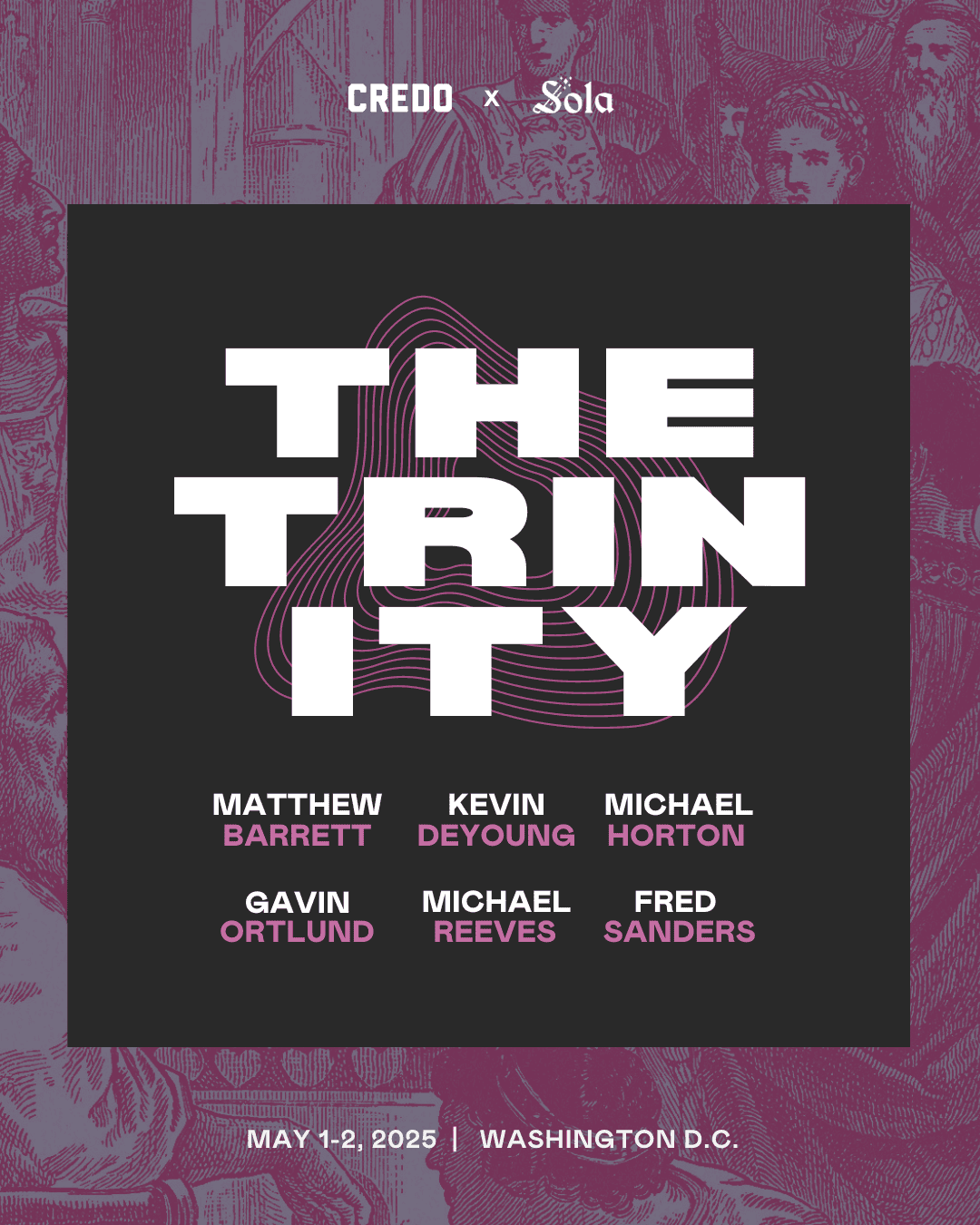
‘Sola Scriptura’ Radicalized and Abandoned (Matthew Barrett)
[Editor’s note: This article was first published at The Gospel Coalition.]
Reformation Day reminds us of Luther’s monumental decision to post his 95 theses to the church door at Wittenberg on October 31, 1517. Luther’s theses would strike into motion an irreversible set of confrontations with Rome, eventually leading to the genesis of Protestantism.
While these 95 theses are important, Luther’s stance on the authority of Scripture over against Rome was not expressed in all of its maturity in 1517. The formal principle of the Reformation would become more and more conspicuous with every passing debate between these two nemeses.
 Sola Scriptura
Sola Scriptura
In 1519 at the Leipzig debate with the Catholic debater Johann Eck, whom Luther called “that little glory-hungry beast,” Eck brought the real issue to the table: who had final authority, God’s Word or the pope? For Eck, Scripture received its authority from the pope. Luther strongly disagreed, arguing instead that Scripture has authority over popes, church fathers, and church councils, all of which have erred.
Luther was quickly classified with the forerunning heretics, John Wycliffe and Jan Hus. At first Luther denied such an association, but during a break in his debate Luther realized that Hus had taught exactly what he believed. Eck returned to Rome and reported his findings to the pope, and Luther left the debate only to become further convinced that Scripture, not the pope, is the sole and final infallible authority.
Luther’s sola scriptura principle would be most famously articulated in 1521 at Worms. On April 17, 1521, Luther was told he must recant. After thinking it through for a day, Luther returned and declared:
Unless I am convinced by the testimony of the Scriptures or by clear reason, for I do not trust either in the pope or in councils alone, since it is well known that they often err and contradict themselves, I am bound to the Scriptures I have quoted and my conscience is captive to the Word of God. I cannot and I will not retract anything, since it is neither safe nor right to go against conscience. I cannot do otherwise. Here I stand. May God help me. Amen.
Luther’s speech is firm and straightforward: Scripture is the norma normans (determining norm), rather than the norma normata (determined norm). As he would explain in future writings, Scripture has priority over the church, for the church is the baby born out of the womb of Scripture, not vice versa. “For who begets his own parent? Who first brings forth his own maker” (LW 36:107; WA 6:561)? Luther rejected the two-source theory that viewed oral tradition as a second, extrabiblical, and infallible source of divine revelation passed down from the apostles to the magisterium. Instead, he argued that Scripture alone is our infallible source of divine revelation.
Radicalization of Sola Scriptura
For many Protestants today, the story ends here. But the story is far from over. Reformers like Luther, Zwingli, and Calvin did not pose a strict either/or dilemma: Scripture or tradition. The reformers may have rejected Rome’s understanding of tradition and upheld the supremacy and final authority of Scripture over tradition. But we would be mistaken to think the reformers did not value tradition or see it as a subordinate authority in some sense. Instead, the reformers believed tradition was on their side!
Therefore, the reformers became frustrated when certain radicals sought to discard tradition altogether. These radicals did not defend and practice sola scriptura, but instead turned to nuda scriptura or solo scriptura. Perhaps this disregard for tradition is best captured in the bombast of Sebastian Franck: “Foolish Ambrose, Augustine, Jerome, Gregory—of whom not one even knew the Lord, so help me God, nor was sent by God to teach. Rather, they were all apostles of Antichrist.” No wonder Alister McGrath concludes, “In the hands of such radical thinkers, the sola scriptura principle became radicalized.”
 Toward a Healthy Use of Tradition
Toward a Healthy Use of Tradition
I wish I could say that all evangelicals today have a crisp, accurate grasp of sola scriptura. I am hopeful that many understand how a Protestant view of Scripture and tradition differs from Rome’s position. However, I am less confident that evangelicals understand the difference between sola and solo scriptura, for in some cases the latter is assumed to be the identity of the former.
Consequently, some evangelicals, intentionally or unintentionally, have followed in the footsteps of Alexander Campbell (1788-1866) who said, “I have endeavored to read the Scriptures as though no one had read them before me, and I am as much on my guard against reading them today, through the medium of my own views yesterday, or a week ago, as I am against being influenced by any foreign name, authority, or system whatever.”
Ironically, such a view cannot preserve sola scriptura. Sure, tradition is not being elevated to the level of Scripture. But the individual is! As Keith Mathison laments, in this view everything is “evaluated according to the final standard of the individual’s opinion of what is and is not scriptural.” To be sure, such a view lends itself more in the direction of individual autonomy than scriptural accountability.
So how do we correct such a mistake? First, we must guard ourselves from an individualistic mindset that prides itself on what “I think” rather than listening to the past. In order to do so, we must acknowledge, as Mathison points out, that “Scripture alone” doesn’t mean “me alone.”
Second, tradition is not a second infallible source of divine revelation alongside Scripture; nevertheless, where it is consistent with Scripture it can and does act as a ministerial authority. The historic creeds and confessions are a case in point. While the Nicene Creed and the Chalcedonian Creed are not to be considered infallible sources divine revelation, nevertheless, their consistency with Scripture means that the church spoke authoritatively against heresy. Therefore, it should trouble us, to say the least, should we find ourselves disagreeing with orthodox creeds that have stood the test of time. Remember, innovation is often the first indication of heresy. Hence, as Timothy George explains, the reformers sought to tie their “Reformation exegesis to patristic tradition” in order to provide a “counterweight to the charge that the reformers were purveyors of novelty in religion,” though at the end of the day the fathers’ “writings should always be judged by the touchstone of Scripture, a standard the fathers themselves heartily approved.”
Abandoning solo scriptura does not require us to go to the other extreme, namely, elevating tradition to the level of Scripture. But it does require the humility to realize that we are always standing on the shoulders of those who came before us. For the reformers, the early church fathers were valuable (though not infallible) guides in biblical interpretation. In that light, we would be wise to listen to Luther this Reformation Day: “Now if anyone of the saintly fathers can show that his interpretation is based on Scripture, and if Scripture proves that this is the way it should be interpreted, then the interpretation is right. If this is not the case, I must not believe him” (LW 30:166; WA 14:31).
Matthew Barrett (PhD, The Southern Baptist Theological Seminary) is Assistant Professor of Christian Studies at California Baptist University, as well as the founder and executive editor of Credo Magazine. He is the author of Salvation by Grace: The Case for Effectual Calling and Regeneration, and several other forthcoming books, which you can read about at matthewmbarrett.com.
